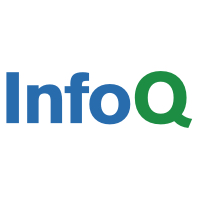
MMS • Ben Linders
Article originally posted on InfoQ. Visit InfoQ

Can we truly be our authentic selves at work, or are we at times covering? Covering takes energy and can isolate people; companies that foster authenticity and remove barriers that inhibit people from being themselves tend to be more successful.
At Women in Tech Dublin 2019, a panel consisting of Mairead Cullen, CIO at Vodafone Ireland, and Ingrid Devin, director of Dell Women’s Entrepreneur Network, discussed being our authentic selves at work. The panel was led by Ruth Scott, radio, TV presenter, MC and event host.
Scott started the panel by asking what our authentic self is. Cullen stated that we are all unique in our skills, behavior, and who we are. She suggested to be comfortable with that, and share our authentic self in the workplace. “We should follow the path we made for ourselves, not follow a path defined by others,” she said.
Scott mentioned that at times people do cover themselves up, something that happens to everyone, as being yourself isn’t always easy. Devin confirmed this; being your authentic self can be hard, it can be a tough thing to do. She gave the example of people having to work in a culture that doesn’t mirror their values.
Being your authentic self isn’t binary; it’s not something you fully do or don’t, said Devin. She suggested to take small steps and be yourself in some aspects.
Cullen said that it can be subtle things that people are covering; small but potentially important things. As it takes energy to put up that mask, it would be better if people could be their authentic selves and take their masks off. It also prevents them from isolating themselves.
When people cannot “be themselves,” how does it affect companies? Devin stated that companies that allow people to behave authentically will be more successful.
Cullen mentioned that nobody is the same at work as they are at home. It is normal to be different in the workplace than at home, but when the individual feels this difference is forced upon them and consumes effort to maintain the difference, then it is a problem.
Companies have to think about what their brand is, said Cullen. This impacts the possibilities for people to associate themselves with the company and be themselves.
Devin mentioned that it can be small things that indicate people can be themselves, but they can mean an awful lot. It’s important to recognize and address things that inhibit people to be authentic at work.
Cullen stated that it’s important for big organizations to show their leadership from the top-down, but equally important is bottom-up leadership. Both are needed to make a difference, as well as sponsorship of diversity and inclusion (D&I). The senior leadership team needs to be a role model and actually put into practise the D&I policies. In addition, it is important to have the bottom-up input, with employees providing feedback and participating in employee resource groups.
Flexible working practices like working hours and unlimited holidays are really important to allow people to be themselves. They have to be lived in the organization to really work, Cullen said. She gave the example of a senior person in her company who took term time; the fact that it was a senior person doing this influenced others who were considering it.
When you hear someone say something inappropriate, it might be difficult to call it out. Most of us have been in such situations, said Scott. As you